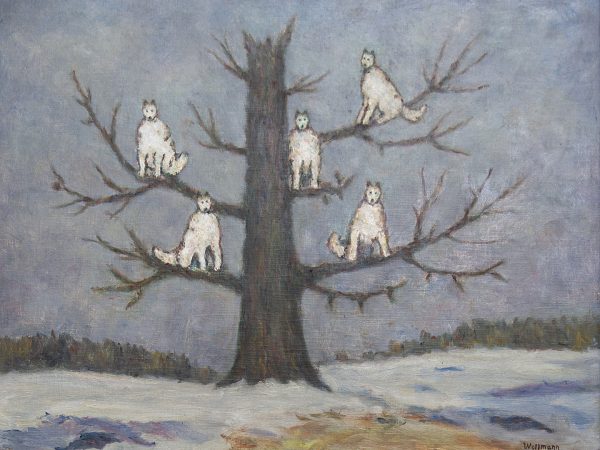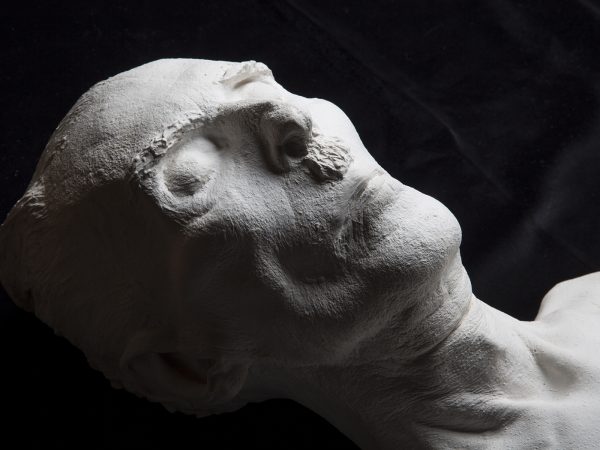The Wolf Man's dream illustrates some of Freud's key claims about dreams.
Freud described dreams as representing the disguised fulfilment of repressed infantile wishes.
The Wolf Man’s dream is no exception, despite the fact that the wish it fulfils causes distress to the dreamer and transforms the dream into a nightmare.
What caused the dream to break down into a nightmare?
The dream shows a dawning awareness of the difference between the sexes.
At the time of the dream, Pankejeff is approaching the culmination of his Oedipus complex, when children are confronted with the question of how they came into the world, and begin to realise that they will have to take up a gendered position as a boy or a girl.
“A child’s intellectual interest in the riddles of sex, his desire for sexual knowledge, shows itself at an unexpectedly early age.”Sigmund Freud
Freud argued that children aren’t born with any knowledge of the difference between boys and girls. As they move through the Oedipus complex, the enigma of sexual difference becomes the source of intense imaginative speculation and fear.
The latent content of Pankejeff’s dream is suggestive of a child’s fear and confusion in the face of sexual difference:
- Horses losing their genitals
- Snakes being chopped to pieces
- Tails falling off
- Wounds to the body
A series of identifications must take place, and this involves facing up to a traumatic loss.
Where are Pankejeff’s identifications?
The case material points to:
- His sister (who he wanted to replace as his father’s favourite)
- His mother (whose words to her doctor, “I can’t go on living like this”, he used to describe himself).
The dream is full of reversals
The manifest dream reverses many of the latent dream-thoughts:
- It reverses the position of the wolves in relation to the tailor (in the latent content the tailor is in the tree and the wolves are below)
- It gives the wolves big tails (the latent content features tails falling off)
- It makes Pankejeff the object being looked at (the latent content features themes of looking)
There are some significant reversals in the rest of the case material:
- Pankejeff’s wish to occupy his sister’s position as their father’s favourite
- His switch from activity to passivity following the scene with his sister
- His parents’ declaration that he “should have been born the girl and his sister the boy”
Freud asks: if the dream-work is reversing so much of the latent content, could the stillness of the wolves in the manifest dream also be a reversal?
The primal scene
“What sprang into activity that night out of the chaos of the dreamer’s unconscious memory-traces was the picture of copulation between his parents.”Sigmund Freud
Freud gathers together the elements of the dream, along with a huge amount of other case material, to make an extraordinary inference:
The dream touched on an earlier memory of witnessing his parents having sex.
Freud theorised that traumatic experiences are organised into scenarios such as this, which he called the primal scene.
The primal scene is a difficult thing for children to make sense of. Typically, they first interpret it as an act of violence by the father (this fits with the dominant sado-masochistic relationship Pankejeff had with his father). It is only later that they begin to think of it in terms of gendered positions.
The dream reconstructed
In his ‘naughty period’, Pankejeff’s masochism was at the forefront of his relation to his father. This was in focus on the night of the dream.
In Freud’s account, the dream unfolds over several moments:
| The first wish | Pankejeff goes to sleep thinking of the presents on the tree. We could imagine that at the start of the dream the tree is a Christmas tree. |
| The dream starts | His dominant masochistic impulses find expression in the wish to receive a gift: the theme of ‘receiving’ something from his father gets a passive, masochistic connotation. |
| A thought intrudes | His other preoccupation at the time enters the dream: sexual difference. |
| The thoughts converge | All of a sudden, the two preoccupations converge: the primal scene becomes gendered, and his passive position in relation to his father is given terrifying new connotations. |
| An attempt at distortion | The dream-work struggles to make this distressing idea harmless by reversing the elements of the primal scene: it makes the wolves perfectly still, and gives them huge tails. |
| The dream breaks down | The dream-work fails to contain the disturbance. The dream breaks down and becomes a nightmare, and Pankejeff wakes up in a panic. |
Freud’s solution to Pankejeff’s change of character
If Pankejeff’s masochism implied a wish to be beaten by his father, the discovery of sexual difference turned this into a gendered position: the idea of being his father’s woman.
According to Freud, Pankejeff had taken various memories, observations, and scraps of information, and pieced them together into a theory: men have a penis and women don’t.
The dream thus confronted Pankejeff with something unthinkable: to be his father’s woman would involve a terrifying loss.
This second transformation (from naughty to anxious) is similar to the first one (from gentle to naughty), when his nanny had made an obscure threat about a “wound”. But in this transformation, the threat is an internalised one.
In Freud’s account, Pankejeff woke up in a state of intense castration anxiety, which for the next six months was expressed in an oral register: as a terror of being eaten by a wolf.
More on Freud’s theory of dreams
Discover more:

Previous chapter
The Dream of the Wolves
Freud's method of dream interpretation, as he applied it to the Wolf Man's dream.
